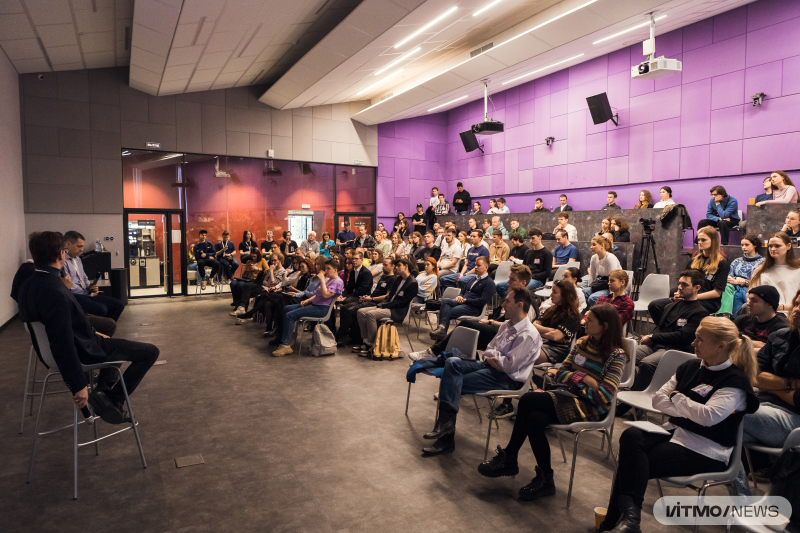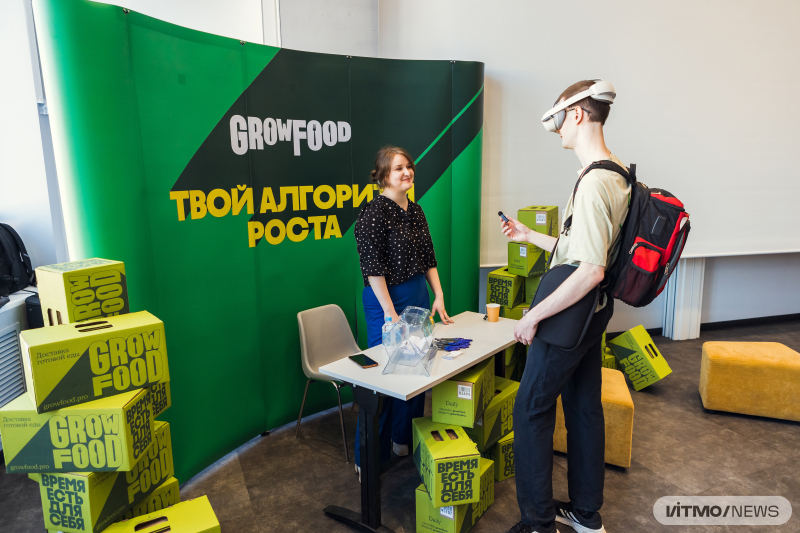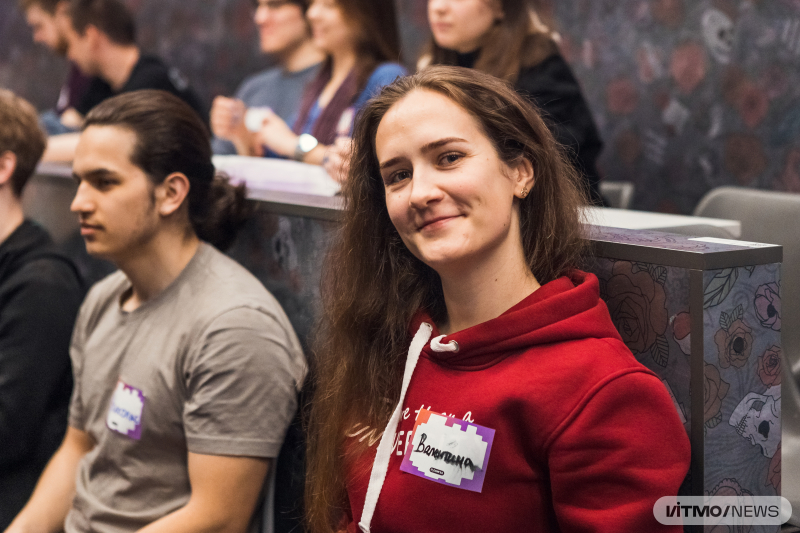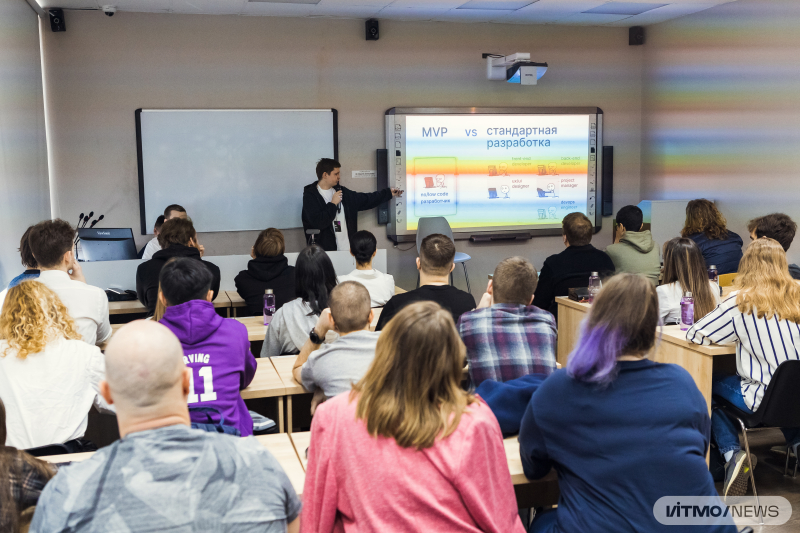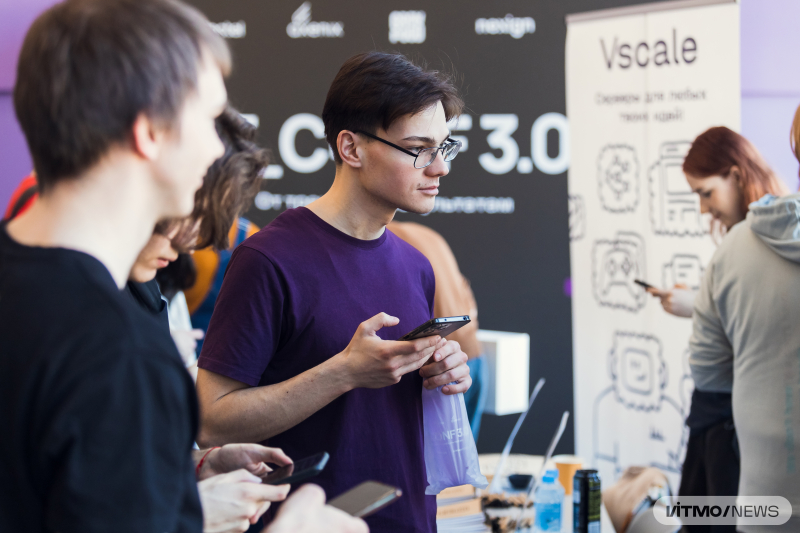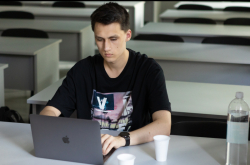IT_Conf 3.0 drew over 400 participants interested in IT and wishing to learn to integrate digital technologies into their work and businesses. The event featured talks, discussions, and workshops by 29 experts on AI, technology trends, IT careers, cybersecurity, development, and DevOps.
When picking subjects, the organizers looked for topics that would be not only current but also accessible to the audience. ITMO students also participated in developing the program of the conference:
“As there are many misconceptions about the IT industry, it’s our responsibility to determine which of these myths are accurate and what tools we can use right now to reach our goals. Take ChatGPT, for example. Has it really changed the game, or is it just hype?” notes Lyudmila Tsoy, the head of ITMO’s Office for Development of Alumni Community.
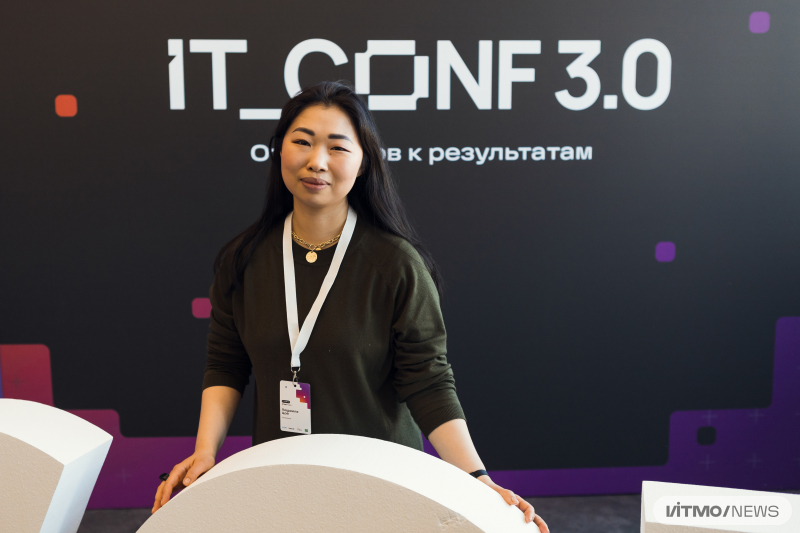
Lyudmila Tsoy. Photo by Dmitry Grigoryev / ITMO.NEWS
At the conference, participants could also reach out to specialists from ITMO’s alumni mentorship and Mentor in Tech programs for career counseling, test-play board games developed by the students of ITMO.GAMEDEV, and compete with AI.
“For the third year in a row, we receive help from not only our graduates and IT professionals – but also our partners, who help us find guest speakers and organize activities. This year, we collaborated with Selectel, Holding T1, Axenix, Nexign, and Grow Food, a company of our graduate Daniel Galper,” adds Lyudmila Tsoy.
Illusions behind AI
The key question raised at the discussion titled Post-AI: the Path to Synergy or Separation? was whether humans truly need AI to solve everyday problems. Drawing from their experiences, the speakers agreed that technologies do not save people from hard work but rather allow us to process large amounts of data and, most importantly, generate hundreds of scenarios for different processes, which is far beyond our own capability.
“We need AI for more than just telemarketing. Technologies are indeed efficient at handling routine tasks, but this does not help business that much. It’d be more beneficial if we employed AI to create added value; this may be done, for instance, by speeding up the product launch process. It can also be of use when people need to swiftly rebuild their corporate processes. While in the past it’d take a lot of time to do so, now it can be done much faster,” notes Alexander Boukhanovsky, the head of ITMO's Research Center “Strong AI in Industry.”
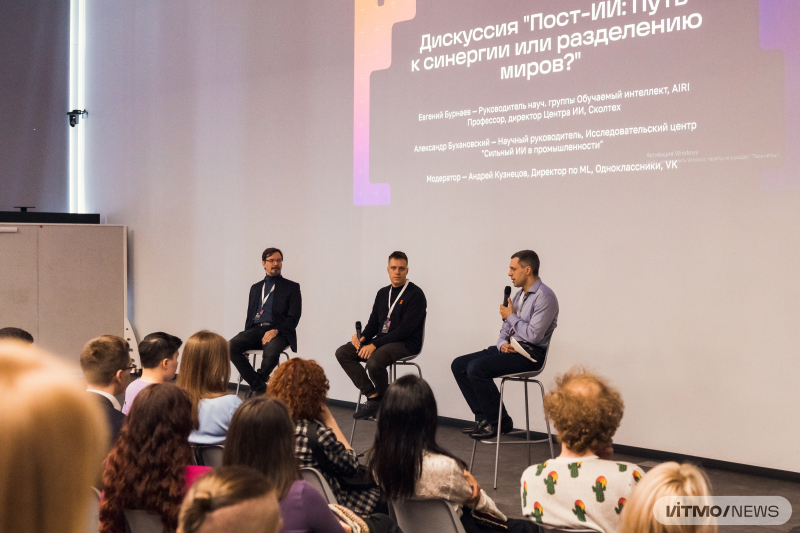
Post-AI: the Path to Synergy or Separation? Photo by Dmitry Grigoryev / ITMO.NEWS
Even far in the future, AI won't replace people, according to the expert. Furthermore, Alexander Boukhanovsky pointed out that technologies also make mistakes, so the focus will have to switch to identifying those errors and verifying the performance of AI.
“If we look at the Boeing case, we will see that the issues with the company's airplanes were caused by faulty software. The question is: “Who or what should be held accountable for this?” It’s evident that the company and the developers were the ones who chose to proceed with flights in spite of the error. The same goes for AI, especially if it’s in critical systems. To prevent such accidents, specialists need to run tests, implement safeguards, and, of course, assign clear responsibilities,” adds Evgeny Burnaev, the head of the research team Teachable AI at the AIRI Institute and head of the Applied AI Center at Skoltech.
Alexander Boukhanovsky concluded that this field of study evolves via trial and error. In his view, it is rather futile to hope for a breakthrough that will revolutionize the field once and for all, as he believes that the smoother the shift, the better. This way, the dystopian future often described in film and literature can be avoided.
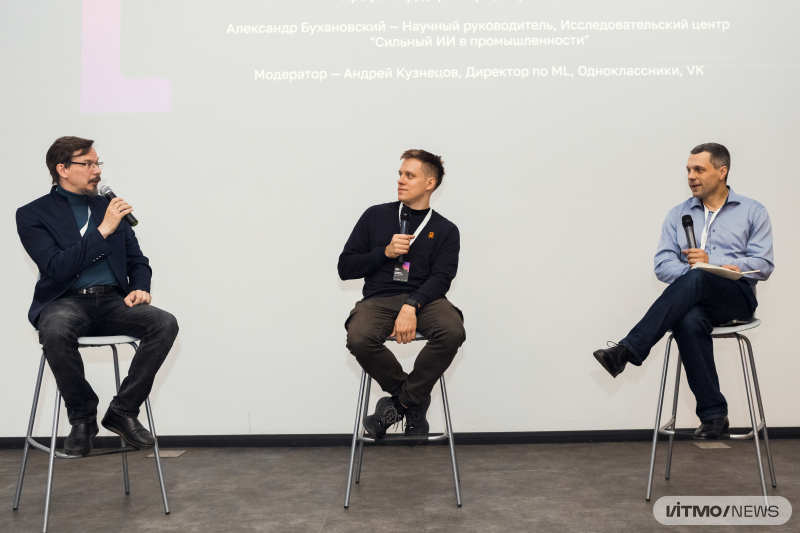
Post-AI: the Path to Synergy or Separation? Photo by Dmitry Grigoryev / ITMO.NEWS
Getting started in IT
The head of HeadHunter’s press office Maria Buzunova had a data-backed report for all those who question the future of IT as a leader of the labor market. In her talk, she emphasized that industry leaders are willing to recruit novice specialists – but with a few caveats.
On the one hand, corporations looking to address relatively easy tasks are ready to hire less-experienced specialists, whereas organizations that have high mistake rates – banks, for example – rarely recruit newcomers. On the other hand, some companies are willing to train specialists for their specific needs “from scratch.”
“Employers start by aggressively recruiting specialists for tech support positions because such jobs involve following a strict algorithm. If the candidate does well in this role, they may stay and switch to a more demanding position at the company,” stresses Maria Buzunova.
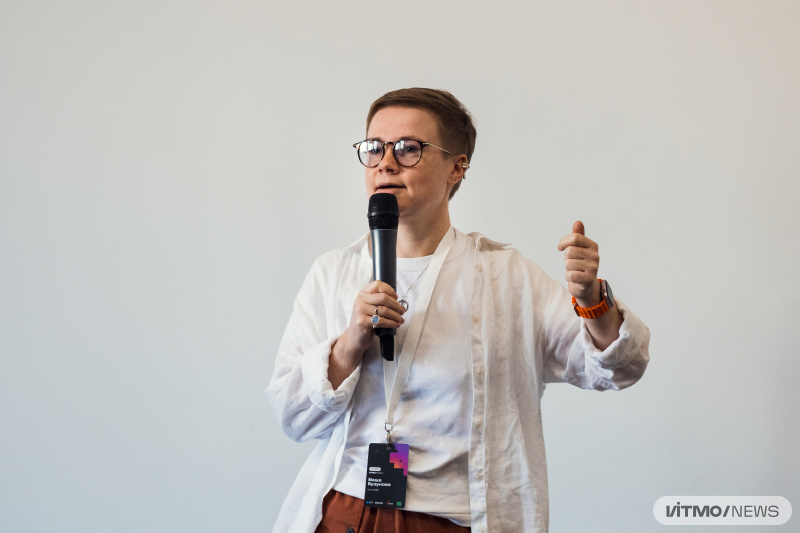
Maria Buzunova at the discussion Post-AI: the Path to Synergy or Separation? Photo by Dmitry Grigoryev / ITMO.NEWS
The speaker also cautioned students against beginning their job search in summer – the graduation season. The market is full at that moment, so it is better if they start looking for a job before their graduation. Another piece of advice is to always include your expected salary in your CV since recruiters often reject candidates whom they cannot confidently place into the available budget bracket.
Corporations vs. startups
The participants of the debate Corporation vs. Small Business attempted to find out which work environment is better. Facing off on the “boxing ring” were Vitaliy Yanko, a managing partner of SoftwareLead and the founder of SPB Founders, and Alexey Schekoldin, the founder of ITMO.KIDS and ITMO FabLab, a laureate of Leaders of Russia 2024, and an ITMO graduate.
For the first time in the conference’s history, participants were to represent their side of the debate in five themed rounds. There could be only one winner in each round. The audience voted for the winner of the round by raising up a white (startups) or black (corporations) card. The one who collected the most votes won.
The host asked the speakers about working time and environment, corporate culture, workspace relations, salaries, and opportunities for growth. The contest ended unexpectedly, with both sides receiving the same amount of votes.
In the end, both speakers noted that small businesses and corporations alike often offer a flexible environment and feature similar traits. The choice between them boils down to figuring out what fits the candidate best. The most important thing is to find something that you enjoy doing and start working – that’s the only key to success.
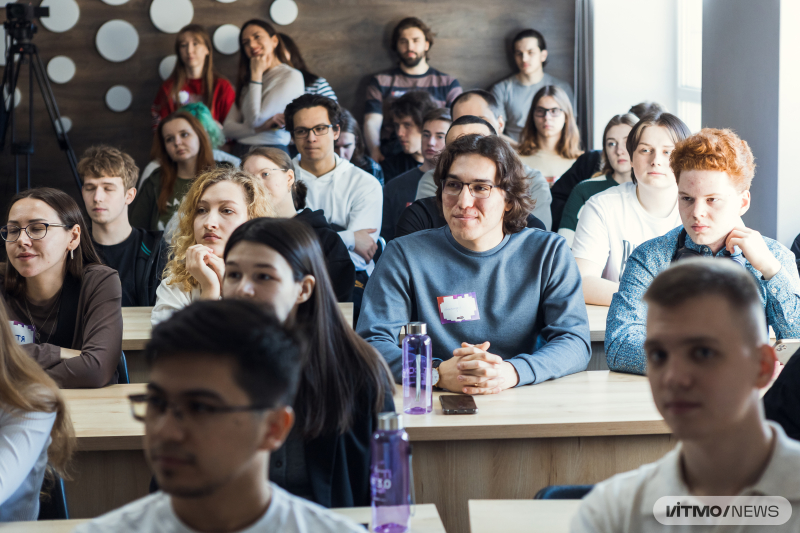
IT_Conf 3.0. Photo by Dmitry Grigoryev / ITMO.NEWS
